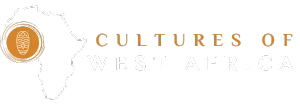Cultures of West Africa is committed to delivering accurate, insightful, and culturally respectful content that reflects the rich diversity and heritage of West African nations.
Our editorial standards ensure that our content is well-researched, unbiased, and contributes positively to the understanding and appreciation of West African cultures.
Content Integrity and Accuracy
- Research and Fact-Checking: All content published on Cultures of West Africa is rigorously researched and fact-checked to ensure accuracy. We rely on credible sources, including academic journals, primary documents, and interviews with experts and cultural custodians.
- Corrections and Updates: We are committed to maintaining the accuracy of our content. If errors are identified, we promptly correct them. Our team regularly reviews and updates articles to reflect the latest information and insights.
Cultural Sensitivity and Respect
- Cultural Representation: We strive to represent West African cultures with respect and authenticity. We are mindful of the diverse ethnic groups, languages, and traditions in the region and ensure that our content honors these distinctions.
- Community Voices: Whenever possible, we incorporate the voices of those within the communities we cover. This includes interviews, guest articles, and collaborations with local experts and cultural practitioners.
Editorial Independence
- Unbiased Content: Cultures of West Africa maintains editorial independence. Our content is not influenced by external pressures, advertisers, or sponsors. We aim to provide balanced perspectives and present a truthful portrayal of West African cultures.
- Ethical Considerations: We adhere to ethical journalism standards, avoiding sensationalism and respecting the privacy and dignity of individuals and communities featured in our content.
Diversity and Inclusion
Our content reflects the diversity of West African cultures, including both well-known and lesser-known traditions, languages, and practices. We are committed to inclusivity, ensuring that marginalized voices and underrepresented communities are also highlighted.
We aim to make our content accessible to a global audience. While our primary language is English, we respect and acknowledge the linguistic diversity of West Africa and occasionally feature content in local languages, accompanied by translations.
Reader Engagement and Feedback
We value the insights and feedback of our readers. We encourage constructive dialogue and welcome comments, suggestions, and critiques. This helps us improve and ensures that our content resonates with our audience.
We are open to content contributions from knowledgeable individuals who share our passion for West African cultures. All submissions are subject to our editorial standards and review process.
Copyright and Attribution
The content published on Cultures of West Africa is original and produced by our editorial team or contributors. We respect intellectual property rights and ensure proper attribution for any external sources, images, or materials used in our articles.
We use images and media that are either original, licensed, or in the public domain. We strive to provide accurate captions and credits, recognizing the creators and cultural significance of the media used.
Editorial Review Process
All articles undergo a thorough editorial review process before publication. This includes checking for factual accuracy, cultural sensitivity, and alignment with our mission and values.
Articles that require specialized knowledge or cultural insight are reviewed by experts or cultural practitioners to ensure authenticity and accuracy.
Transparency and Accountability
We disclose any affiliations, partnerships, or sponsorships that may influence the content we produce. Transparency is key to maintaining the trust of our readers.
We are committed to continuous improvement in our editorial practices. We regularly review our policies and processes to ensure they align with industry standards and our mission.






